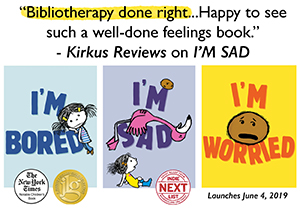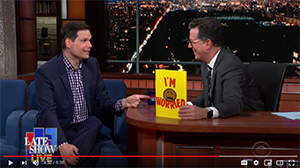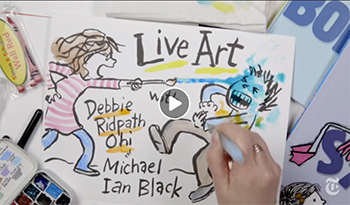Tuesday
Apr102007
How do I make people WANT to stay and listen to me perform?
Posted on  Tuesday, April 10, 2007 at 3:50PM
Tuesday, April 10, 2007 at 3:50PM
 Tuesday, April 10, 2007 at 3:50PM
Tuesday, April 10, 2007 at 3:50PM
Cleverly using some of the suggestions kindly offered by filkers about how to get a turn singing in an open filk circle, Grizelda starts performing. As she does, however, she notices several people getting up from the circle and leaving the room. After she finishes performing, she is also disappointed by the polite but unenthusiastic response.
"What can I do to make people -want- to stay and listen to me perform?" Grizelda wonders.
There are all kinds of reasons why filkers might be leaving the circle that have nothing to do with Grizelda: They needed to stretch after sitting for so long, for example. They have to use the bathroom. They want to greet a friend who has just arrived at the convention. They were overcome by a sudden craving for chocolate or Tully. Yes, it kind of sucks re: timing that they happened to choose Grizelda's performance slot in which to leave, but chances are good they actually do regret having to leave.
That's why I added the last bit to Grizelda's situation. If she still gets an enthusiastic response to her song/piece, then it's very likely the reasons for the audience members leaving had nothing to do with her at all. BUT if she notices a trend of people always leaving as well as consistent unenthusiastic response to her performing, I can't blame her for looking for a solution.
Some suggestions from other people...
From Mary:
"Sad to say, sometimes people are on their own schedules, and you *can't* make them stay. Mostly, though, the only thing that will make people really want to stay is improving your performance skills. These include, but are not limited to:
This noted, EVERYONE has bad days. One song that I nailed at Marcon and which I tend to play too quickly I played waaaay too slowly at Confluence. It happens to everyone. Don't ever beat yourself up for not doing well enough. Performance is a thing that develops over time - just keep an open mind, and keep practicing."
From Lissa Allcock:
"And here we have the non-PC answer
Be honest with yourself about your talent level. If your voice is not great (yet, as most people's voices do improve the more often they use them) then it's best to stay away from long songs, regardless of how much you enjoy singing Horse Tamer's Daughter.
Before you go to the circle (or even the con) practice the songs you'd like to sing in a quiet environment so you can hear what you are doing with it and develop better control. As above, practice does improve, and people are more likely to stay and/or appreciate your song if you're not missing half the notes and if they can hear the words and understand what you're singing.
Singing along to a guitar helps you to stay in tune, so if you don't play yourself but have a friend who does (or the nerve to ask someone you don't know all that well to accompany you) then it's worth it (though again, it's a good idea to do a run through with them (outside the filk room) before starting so you both pace the music the same. People who are used to singing acapella (say, in the bathroom ) can develop their own feel for pace and this can cause accompanist confusion even if you're singing a well known song).
Usually if the room has developed a theme or a mood it's better to try and sing songs that keep with that. This is one of those unwritten rules that it's usually better to leave to the more popular performers to break, as people will more readily follow their diversions."
From Erica:
"Following on with the non-PC answers: it's also much easier to get by with weak performance skills if you have a funny song than if it's serious. I don't know why; maybe because people want to stay and hear the next clever line or silly joke. Maybe it's because if you're laughing, you're generally in a good mood and thus are more forgiving of slight defects in performance. But it's definitely something I've noticed."
From Phil Parker:
"One point that I don't think the responses up to now have given enough emphasis to is selecting material well. This has three parts: choosing a good song, choosing a song that fits you well, and choosing a song that fits the moment.
In choosing a song, there are some Grizeldas out there who insist on performing their own material. It's great that Grizelda has managed to write a song of her own, but she needs to ask herself if it's actually good enough to be worth sharing with other people, and be honest about the answer. As a listener (which I am far more of the time than I am a performer) I would much rather hear Grizelda sing a good song that someone else wrote than a bad one she wrote herself, and when she sings a bad song, I can't feign much enthusiasm in my reaction just out of my desire to encourage her to keep trying. Lest anyone deliberately misunderstand me, I'm not saying that Grizelda shouldn't sing her own song unless she really thinks it's better than last year's Pegasus winner. Her song doesn't have to be great, but it should actually be good.
Choosing a song that fits well has several parts. First, Grizelda should forget about any song (whether her own or another's) that she doesn't genuinely like and also genuinely believe is a good song. Singing a song without the confidence that it deserves to be sung is a job best left to professionals. Second, Grizelda should choose a song that's convincing coming from her. A song in the first person from a female point of view is more convincing from a female singer. A song meant to fire up the troops before battle is not very convincing coming from a quavery, quiet soprano. Third, Grizelda should gauge whether she wants active participation from others for the song, or whether she's better off by herself. Some people who sing a capella really would rather play with a guitar but can't play it themselves; other people find accompaniment a distraction. The same goes for people singing along, either in unison or in harmony. If Grizelda wants help, she should choose a song that is at least somewhat familiar, or if it's completely new, arrange outside of the filk to teach it to some people who'll help her. If she wants to perform strictly solo, it's at least OK and maybe better to choose something that's completely unfamiliar. Either way, she should say briefly in her introduction how much help she'd like.
Choosing the right moment for a song is more important than any of the other stuff I've mentioned here. Unfortunately, I'm not sure I have much good advice on this point, beyond emphasizing that it does matter and Grizelda should choose her moment carefully. She should try to avoid doing her song right after someone else has done a song that is very similar in mood, tempo, theme, etc., that is going to make her song look bad in comparison. Beyond that, she needs to either match a moment where the room is ready for more material on the current theme with a song that matches the theme, or a moment where the room is ready for a change of pace with a song that creatively either twists or shatters the theme. Following the theme may seem safer, but it's no guarantee, and insisting on only following the theme is likely to lead to frustration if Grizelda has one particular song she wants to sing.
One other point that I wanted to make in a separate comment is that unless Grizelda is either really good or really terrible, she will surely find a more enthusiastic reception while she's developing her technical skills and her confidence if she seeks out a small circle with other people who are at her own level rather than trying to run with the big dogs in that 50-guitar cutthroat main filk room. Without being intentionally elitist, we have to recognize that the audience in the room full of great musicians is going to be expecting a high level of performance skill. This is multiplied by the fact that half of that audience is themselves musicians who are impatiently waiting for their own turn because there are too many people in the room, and they're apt to resent (hopefully not consciously, but it will still be there) having to wait even longer for Grizelda's turn. Finally, Grizelda is probably going to be too intimidated by that crowd to perform at her best.
A great place to find a small and welcoming circle is at a housefilk. If Grizelda lives in a large metropolitan area, there's a fair chance that there are some other filkers in the area, so if there isn't a regular local housefilk, she ought to start one!"
From beige-alert:
"I think I tend to get the best reactions in response to songs that much or all of the audience hasn't heard before, or hasn't heard often or recently. At least if you sing something that hasn't been recorded you won't be, in some sense, competing for attention with a studio recording by very good performers. This advice might work best with silly songs. As a listener I find that funny songs are usually funny the first time while serious songs, unless I'm very familiar with the subject matter, I usually don't 'get' until I've heard them a few times and really understand the story. (I'd be interested in hearing if others feel the same way.) At least in my experience, the songs that seem to engage the audience best even with very weak performance skills are silly songs new to the audience (thank you, Kanefsky, for that wonderful web site).
It also helps to know more than just one or two songs, so that you are more likely to know something that fits the mood.
To bring up another issue, practice at home alone is vital, but to some extent getting used to having an audience requires an audience, painful as that may be at first to performer and audience alike. In my case, at least, stage fright has greatly diminished with experience, at the cost of a trail listeners who probably wondered if I suffered from a neuromuscular disorder and deafness besides."
Comments? Suggestions? Please post them below:
"What can I do to make people -want- to stay and listen to me perform?" Grizelda wonders.
There are all kinds of reasons why filkers might be leaving the circle that have nothing to do with Grizelda: They needed to stretch after sitting for so long, for example. They have to use the bathroom. They want to greet a friend who has just arrived at the convention. They were overcome by a sudden craving for chocolate or Tully. Yes, it kind of sucks re: timing that they happened to choose Grizelda's performance slot in which to leave, but chances are good they actually do regret having to leave.
That's why I added the last bit to Grizelda's situation. If she still gets an enthusiastic response to her song/piece, then it's very likely the reasons for the audience members leaving had nothing to do with her at all. BUT if she notices a trend of people always leaving as well as consistent unenthusiastic response to her performing, I can't blame her for looking for a solution.
Some suggestions from other people...
From Mary:
"Sad to say, sometimes people are on their own schedules, and you *can't* make them stay. Mostly, though, the only thing that will make people really want to stay is improving your performance skills. These include, but are not limited to:
- * Getting rid of the attitude that it's Your Turn, So People Have to Listen to You Now. Strange, but true. It's one of the things that will drive people away most quickly.
* Use a reasonable tempo. Slowing a song down too much loses your audience. To find out if you're doing so, tape yourself. Come back to the tape a week later and listen to it; decide if it's something you would want to listen to.
* Use SHORT introductions if you must use one at all. If the audience gets the sense that you're wasting their time, you've lost them.
* Practice your instrument. There are a number of "little" things you can do to make your guitar/mandolin/bazouki playing more interesting than a steady, flat strum.
* Enunciate clearly. It's really boring to listen to a song when you can't understand half the words.
* Don't wait for people to tell you how bad you sound. When you have that attitude, it shows. It cuts you off from the audience, puts you in a little box, and keeps you from achieving the connection necessary for a good performance.
* Most importantly, put ENERGY into your performance. I have heard perfectly good singers sound perfectly boring simply because they were having an off day and weren't putting their energy into their performance.
This noted, EVERYONE has bad days. One song that I nailed at Marcon and which I tend to play too quickly I played waaaay too slowly at Confluence. It happens to everyone. Don't ever beat yourself up for not doing well enough. Performance is a thing that develops over time - just keep an open mind, and keep practicing."
From Lissa Allcock:
"And here we have the non-PC answer
Be honest with yourself about your talent level. If your voice is not great (yet, as most people's voices do improve the more often they use them) then it's best to stay away from long songs, regardless of how much you enjoy singing Horse Tamer's Daughter.
Before you go to the circle (or even the con) practice the songs you'd like to sing in a quiet environment so you can hear what you are doing with it and develop better control. As above, practice does improve, and people are more likely to stay and/or appreciate your song if you're not missing half the notes and if they can hear the words and understand what you're singing.
Singing along to a guitar helps you to stay in tune, so if you don't play yourself but have a friend who does (or the nerve to ask someone you don't know all that well to accompany you) then it's worth it (though again, it's a good idea to do a run through with them (outside the filk room) before starting so you both pace the music the same. People who are used to singing acapella (say, in the bathroom ) can develop their own feel for pace and this can cause accompanist confusion even if you're singing a well known song).
Usually if the room has developed a theme or a mood it's better to try and sing songs that keep with that. This is one of those unwritten rules that it's usually better to leave to the more popular performers to break, as people will more readily follow their diversions."
From Erica:
"Following on with the non-PC answers: it's also much easier to get by with weak performance skills if you have a funny song than if it's serious. I don't know why; maybe because people want to stay and hear the next clever line or silly joke. Maybe it's because if you're laughing, you're generally in a good mood and thus are more forgiving of slight defects in performance. But it's definitely something I've noticed."
From Phil Parker:
"One point that I don't think the responses up to now have given enough emphasis to is selecting material well. This has three parts: choosing a good song, choosing a song that fits you well, and choosing a song that fits the moment.
In choosing a song, there are some Grizeldas out there who insist on performing their own material. It's great that Grizelda has managed to write a song of her own, but she needs to ask herself if it's actually good enough to be worth sharing with other people, and be honest about the answer. As a listener (which I am far more of the time than I am a performer) I would much rather hear Grizelda sing a good song that someone else wrote than a bad one she wrote herself, and when she sings a bad song, I can't feign much enthusiasm in my reaction just out of my desire to encourage her to keep trying. Lest anyone deliberately misunderstand me, I'm not saying that Grizelda shouldn't sing her own song unless she really thinks it's better than last year's Pegasus winner. Her song doesn't have to be great, but it should actually be good.
Choosing a song that fits well has several parts. First, Grizelda should forget about any song (whether her own or another's) that she doesn't genuinely like and also genuinely believe is a good song. Singing a song without the confidence that it deserves to be sung is a job best left to professionals. Second, Grizelda should choose a song that's convincing coming from her. A song in the first person from a female point of view is more convincing from a female singer. A song meant to fire up the troops before battle is not very convincing coming from a quavery, quiet soprano. Third, Grizelda should gauge whether she wants active participation from others for the song, or whether she's better off by herself. Some people who sing a capella really would rather play with a guitar but can't play it themselves; other people find accompaniment a distraction. The same goes for people singing along, either in unison or in harmony. If Grizelda wants help, she should choose a song that is at least somewhat familiar, or if it's completely new, arrange outside of the filk to teach it to some people who'll help her. If she wants to perform strictly solo, it's at least OK and maybe better to choose something that's completely unfamiliar. Either way, she should say briefly in her introduction how much help she'd like.
Choosing the right moment for a song is more important than any of the other stuff I've mentioned here. Unfortunately, I'm not sure I have much good advice on this point, beyond emphasizing that it does matter and Grizelda should choose her moment carefully. She should try to avoid doing her song right after someone else has done a song that is very similar in mood, tempo, theme, etc., that is going to make her song look bad in comparison. Beyond that, she needs to either match a moment where the room is ready for more material on the current theme with a song that matches the theme, or a moment where the room is ready for a change of pace with a song that creatively either twists or shatters the theme. Following the theme may seem safer, but it's no guarantee, and insisting on only following the theme is likely to lead to frustration if Grizelda has one particular song she wants to sing.
One other point that I wanted to make in a separate comment is that unless Grizelda is either really good or really terrible, she will surely find a more enthusiastic reception while she's developing her technical skills and her confidence if she seeks out a small circle with other people who are at her own level rather than trying to run with the big dogs in that 50-guitar cutthroat main filk room. Without being intentionally elitist, we have to recognize that the audience in the room full of great musicians is going to be expecting a high level of performance skill. This is multiplied by the fact that half of that audience is themselves musicians who are impatiently waiting for their own turn because there are too many people in the room, and they're apt to resent (hopefully not consciously, but it will still be there) having to wait even longer for Grizelda's turn. Finally, Grizelda is probably going to be too intimidated by that crowd to perform at her best.
A great place to find a small and welcoming circle is at a housefilk. If Grizelda lives in a large metropolitan area, there's a fair chance that there are some other filkers in the area, so if there isn't a regular local housefilk, she ought to start one!"
From beige-alert:
"I think I tend to get the best reactions in response to songs that much or all of the audience hasn't heard before, or hasn't heard often or recently. At least if you sing something that hasn't been recorded you won't be, in some sense, competing for attention with a studio recording by very good performers. This advice might work best with silly songs. As a listener I find that funny songs are usually funny the first time while serious songs, unless I'm very familiar with the subject matter, I usually don't 'get' until I've heard them a few times and really understand the story. (I'd be interested in hearing if others feel the same way.) At least in my experience, the songs that seem to engage the audience best even with very weak performance skills are silly songs new to the audience (thank you, Kanefsky, for that wonderful web site).
It also helps to know more than just one or two songs, so that you are more likely to know something that fits the mood.
To bring up another issue, practice at home alone is vital, but to some extent getting used to having an audience requires an audience, painful as that may be at first to performer and audience alike. In my case, at least, stage fright has greatly diminished with experience, at the cost of a trail listeners who probably wondered if I suffered from a neuromuscular disorder and deafness besides."
Comments? Suggestions? Please post them below:
in  Performance
Performance
 Performance
Performance 







